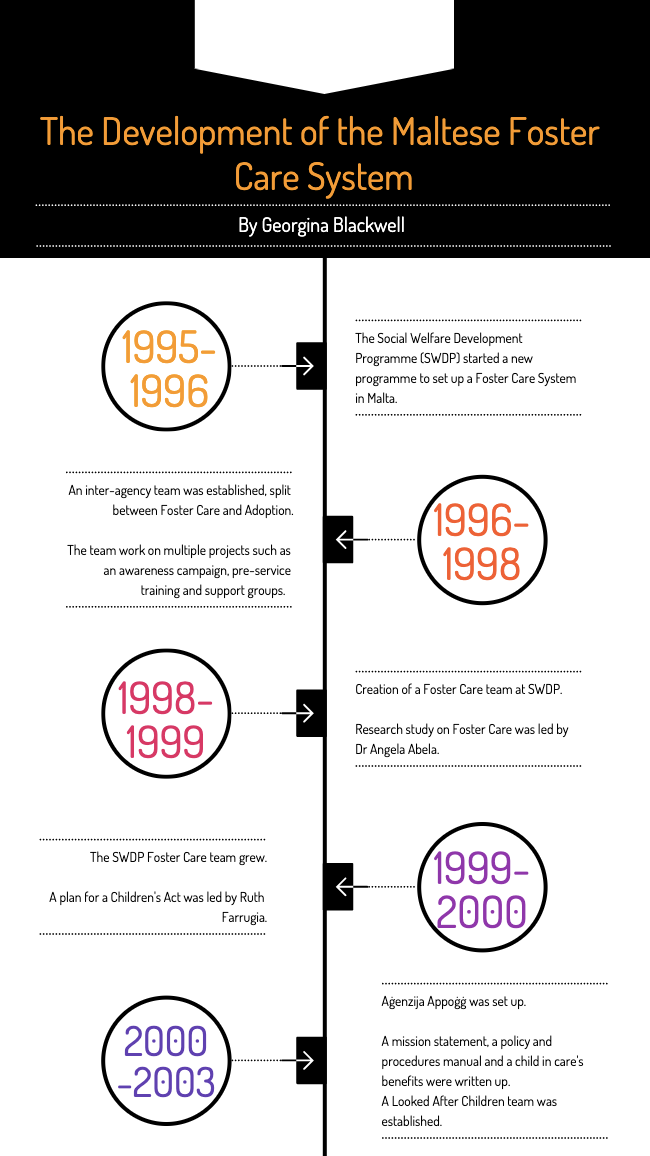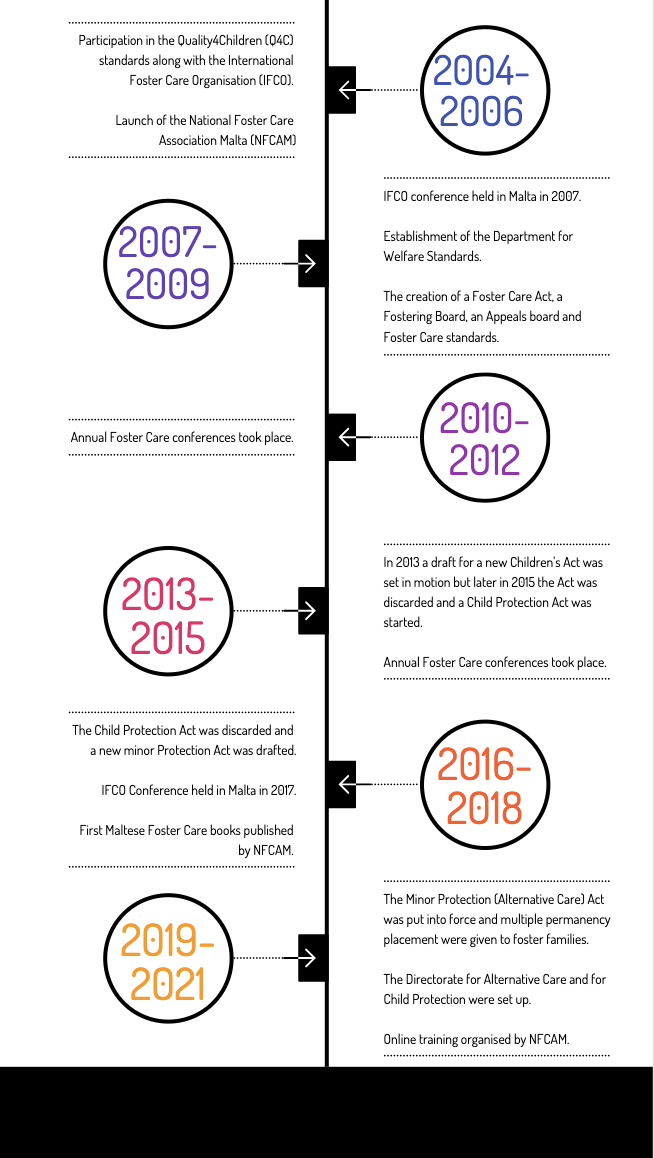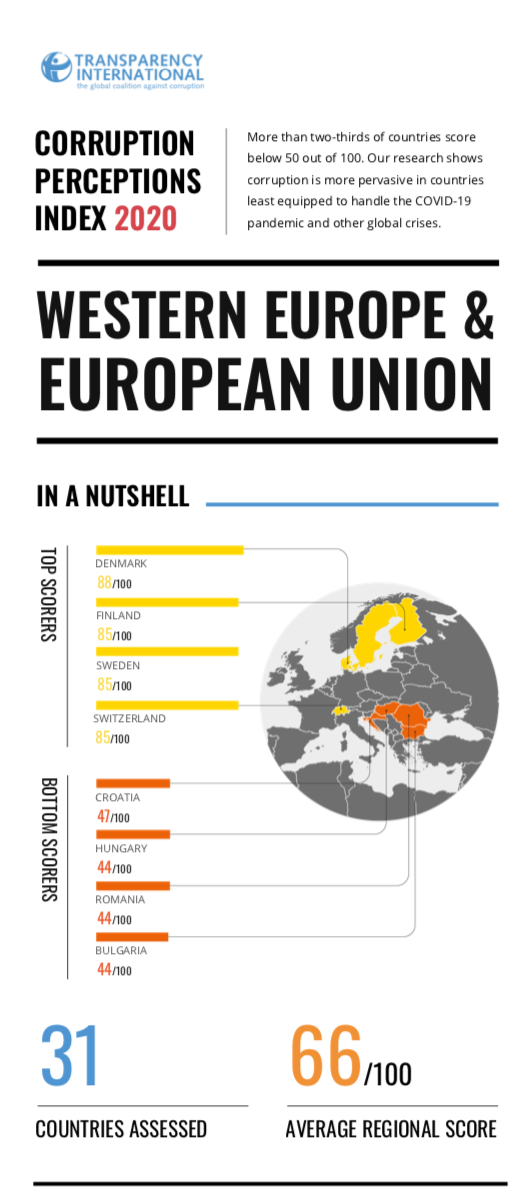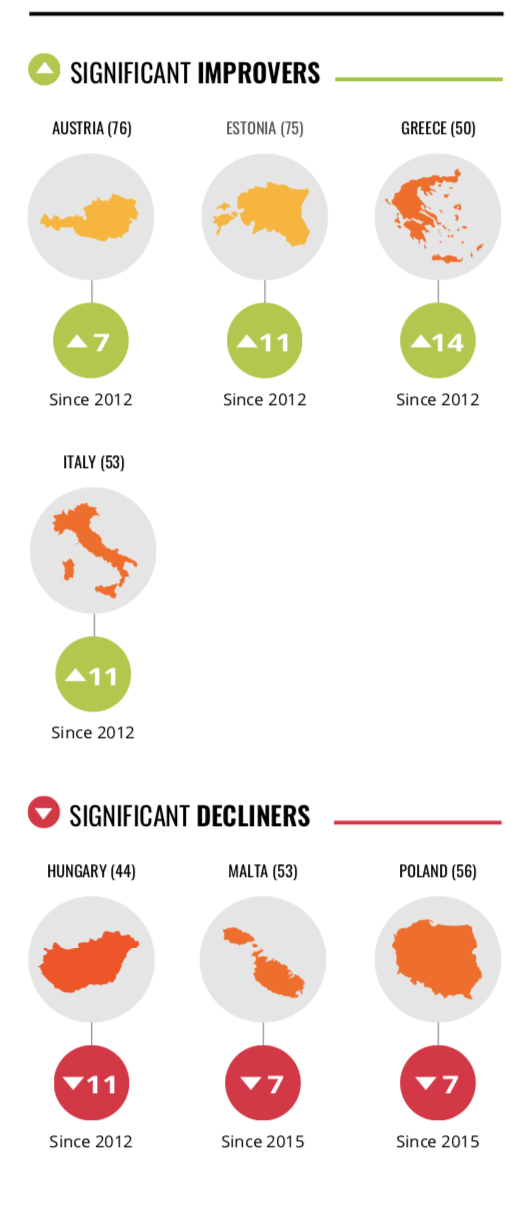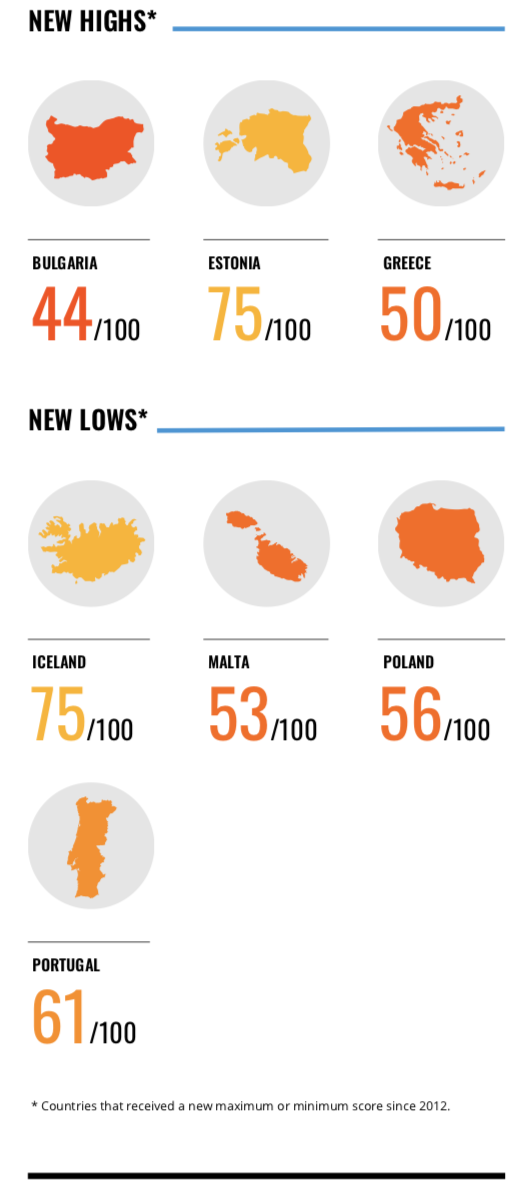Maltese politics crumbling children's lives
An investigation into the Maltese Foster Care System
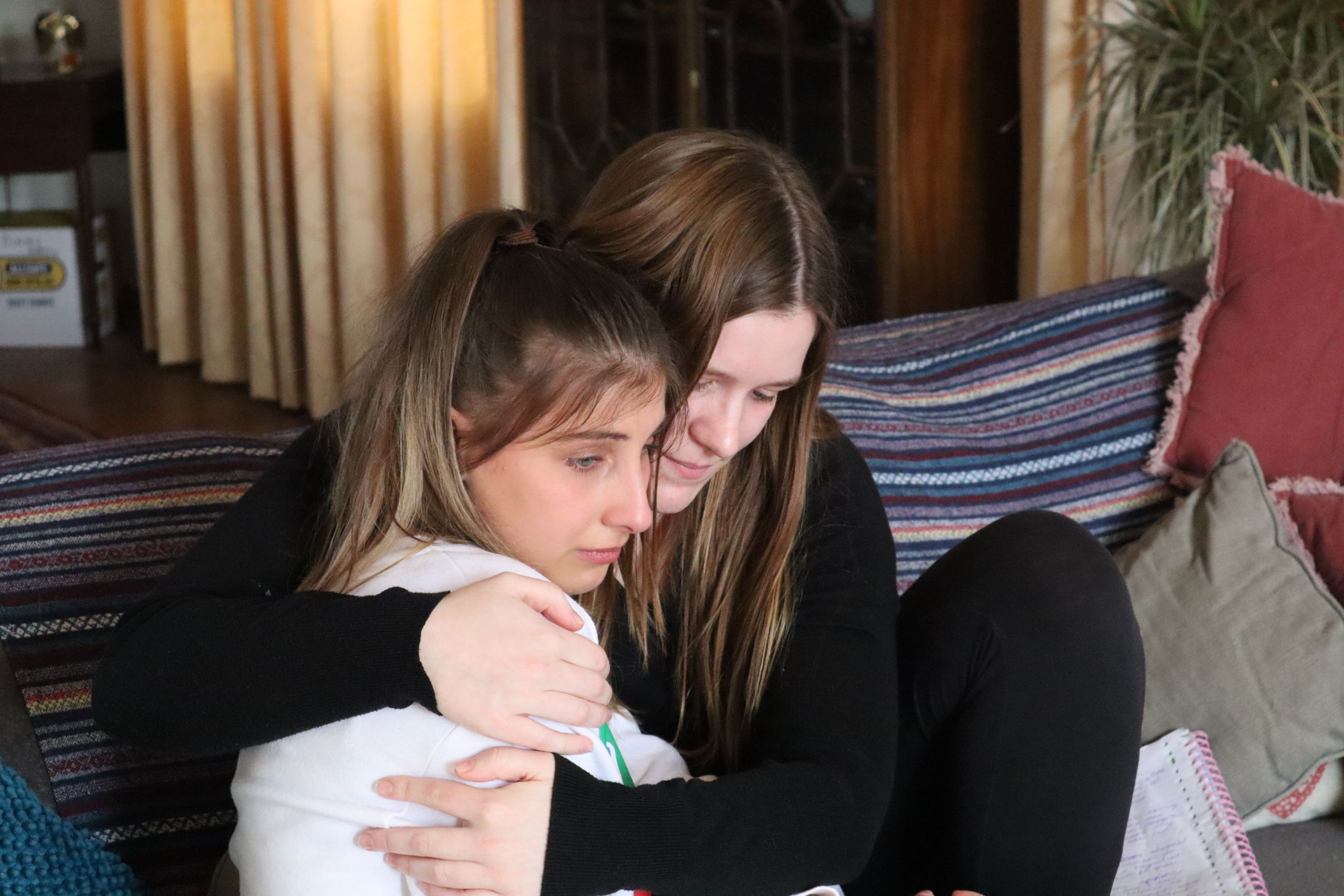
This isn't my story.
This is Maria's story, this is Therese's story, this is Heidi's story, this is Anna's story. This is the stories of all the foster children and foster parents in Malta.
This is for them, to raise awareness and create change.
Maria, now 21 years old, was fostered by Heidi and Mark Farrugia when she was four years old.
I met them in 2007 when they moved to the Netherlands when Maria was just seven years old.
During the 13 years I have known them, Heidi was very open about fostering and often spoke about her experiences with the system, which were mostly bad.
"Sometimes, decisions are taken but they are not thinking of what's best for the child. The child should always be put first."
Heidi would tell me stories from other foster families in Malta, supporting her description of a "corrupt" foster system.
I decided to go to Malta and investigate the system to see if it really was as bad as I had perceived from the stories Heidi had told me. Had she just had a bad experience? was she being bias? were these just a few isolated cases? or is the whole system truly corrupt?
During this investigation, I realised very early on that politics plays a huge role in the management of the Foster Care System in Malta. Therefore, the content of my story expanded from a pure human rights case into one that required deeper political investigation.
The story of a young girl who was separated from her sister
Maria Azzopardi is the seventh of eight siblings, who were all (with the exception of one brother) placed into care because her parents had a criminal record, including drugs and prostitution.
A couple of years before Maria was born, a care order was issued which placed Maria under governmental protection, meaning she was placed into an orphanage straight from birth.
Maria spent her first few years in 'Ursoline Creche', an orphanage run by nuns.
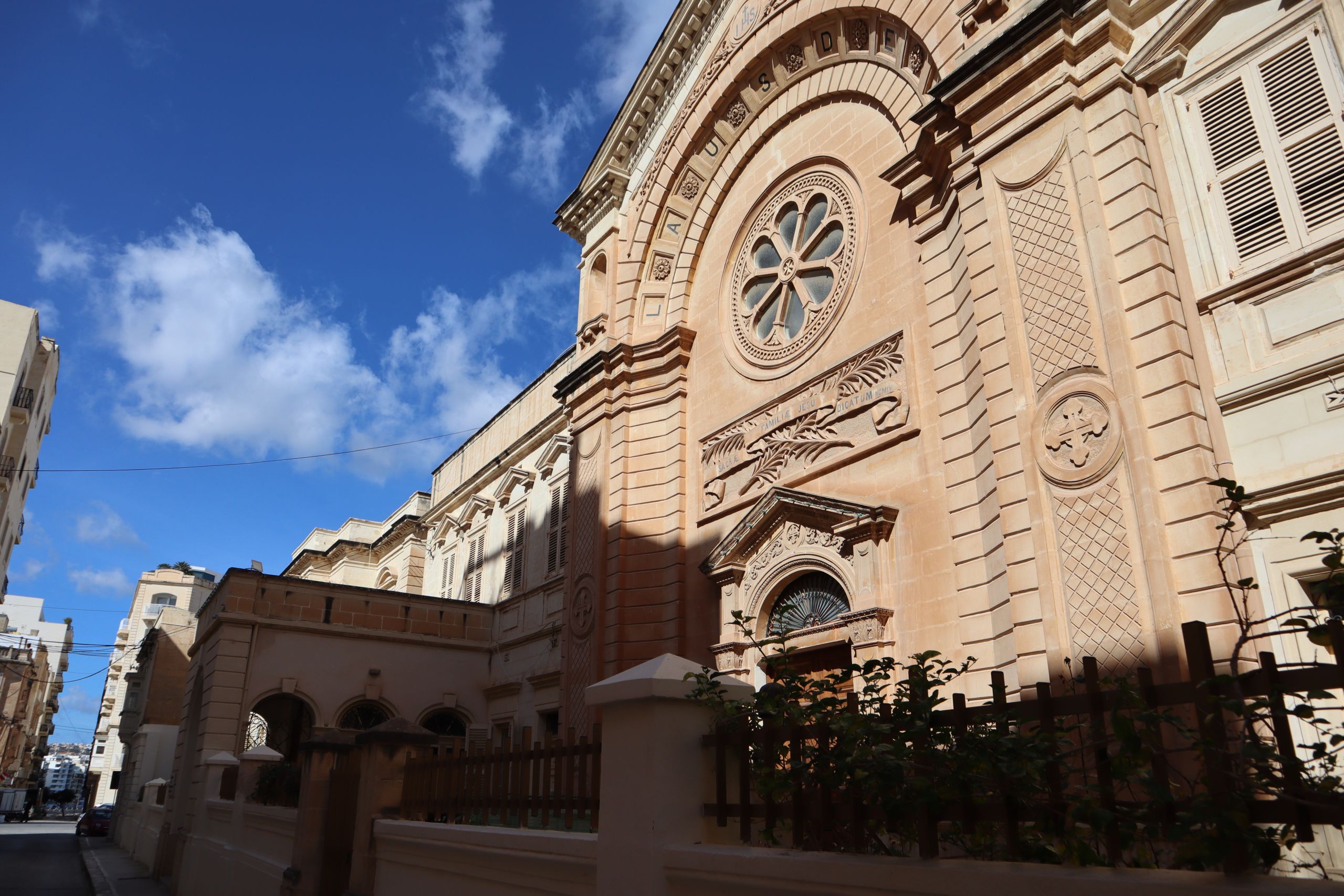
The orphanage Ursoline Creche in Sliema, Malta. Taken by Georgina Blackwell.
The orphanage Ursoline Creche in Sliema, Malta. Taken by Georgina Blackwell.
At the age of three, Heidi and Mark Farrugia intended to foster both Maria and one of her sisters from the same orphanage. At the time, Heidi and Mark were already fostering a 10 year old boy named Alfred, who completely coincidentally happened to be Maria's brother.
This would have given Maria the chance of growing up with two of her siblings, sadly things didn't go as planned.
Just before Maria was supposed to be fostered by Heidi and Mark, she was given to another couple by one of the nuns at the orphanage.
Maria was with this family for 10 months until, just before her fourth birthday, she was reunited with Heidi and Mark.
Now that Maria was back with the family she was supposed to be with, she had the opportunity to grow up with her brother Alfred.
When Maria and I spoke about growing up with one of her siblings, she told me how it really helped her because she had someone who could relate to her situation and emotionally support her.
As mentioned before, Maria was supposed to grow up with two of her siblings but only ended up growing with Alfred.
Maria's sister was given up for adoption and her adoptive family didn't want contact with any of her siblings. Maria said "It's quite sad that her parents didn't want any contact with me or the other siblings."
Maria, now aged 21, is still searching for her sister. She told me that she is angry at the system for letting this happen to her as she believes if they could have grown up together, life would have been totally different, in a good way.
Although Maria had a hard start to life, losing a year with her family and the possibility of growing up with her sister, things turned around.
When Maria was seven years old, her family moved to the Netherlands where Maria could make a fresh start.
Maria mentioned moving to the Netherlands and being far away from the situation meant she could avoid thinking and worrying about it.
Maria had a great education and despite having learning difficulties and struggling at school, she did, and is doing incredibly well. By the age of just 21, she managed to get a job she loved and moved into her own flat.
Maria being a very strong and kind person, tends to remain very positive when speaking about what she has been through. I knew that deep down she had anger towards her biological parents, that she needed to let out.
I asked her what she would say to her biological parents if she got the chance. She told me that she would tell them they should have thought about what they were doing and that they really let her and her siblings down, which is not fair on them.
"You brought a mess to our lives and caused so many problems."
She told me that this message doesn't only go out to her parents, but other parents in a similar situation who let their own children down.
Maria spoke about an uncomfortable encounter that she faced with her biological mother.
Aged 17, Maria was visiting her sister in Malta and her biological mother burst in, unannounced. Maria told me how shocked she was and how her mother acted as if nothing had ever happened. Maria was very upset and confused by this situation.
Maria said "That's why I don't want to see her ever again. She is still my mother, and I accept that but what she did was unacceptable."
The first time I asked Maria what she would say to her parents (foster), she broke down in tears telling me "She's a hero. She's not a mother of one, but a mother of all the children that are in care. So is my dad."
Maria told me that they are both incredibly strong people who gave her the love that she is supposed to have.
Maria wanted all foster parents to know "You are doing a good job because you are helping children. You are giving them the love that they deserve and giving them a new life."
I asked Maria, from her personal experience, what her opinion on the Maltese Foster Care system is. She said "They can do a lot better. They need to focus more on the children and put more effort into keeping siblings together."
The last message that Maria wanted to tell everyone is that people really need to help children who need it. That there needs to be more awareness surrounding children in care. People need to listen to these children's stories, give them a voice, let them speak about their experiences and their life. The more people know about what these children go through, the more action that can be taken to stop it from happening again.
Maria is a prime example of a child who was saved by fostering. Her life was and is hard because of the traumas and experiences, but she is happy and thriving with her family, that she deserved to have from day one.
"She is so resilient, she is such a strong girl and I am so proud of her."
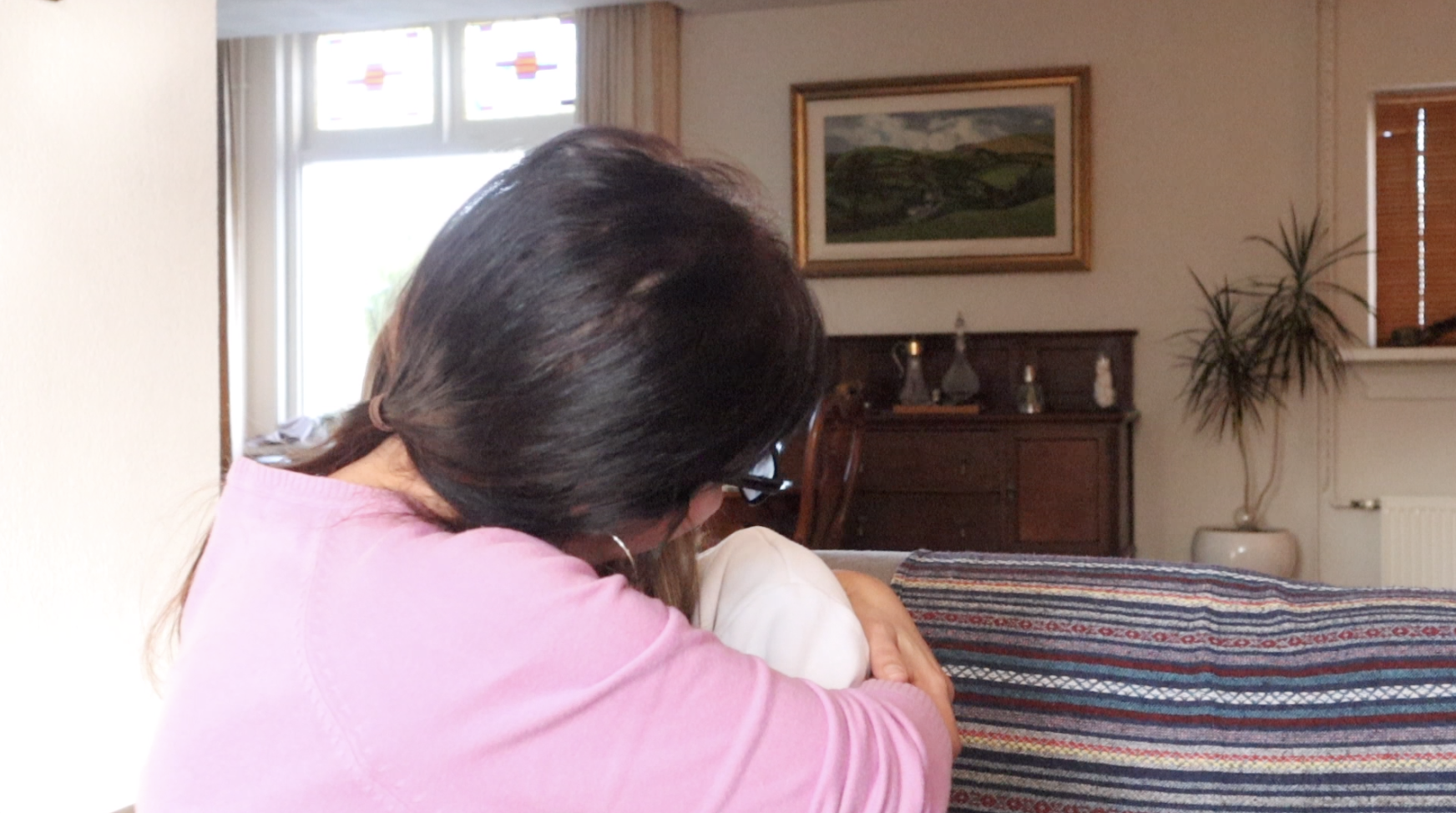
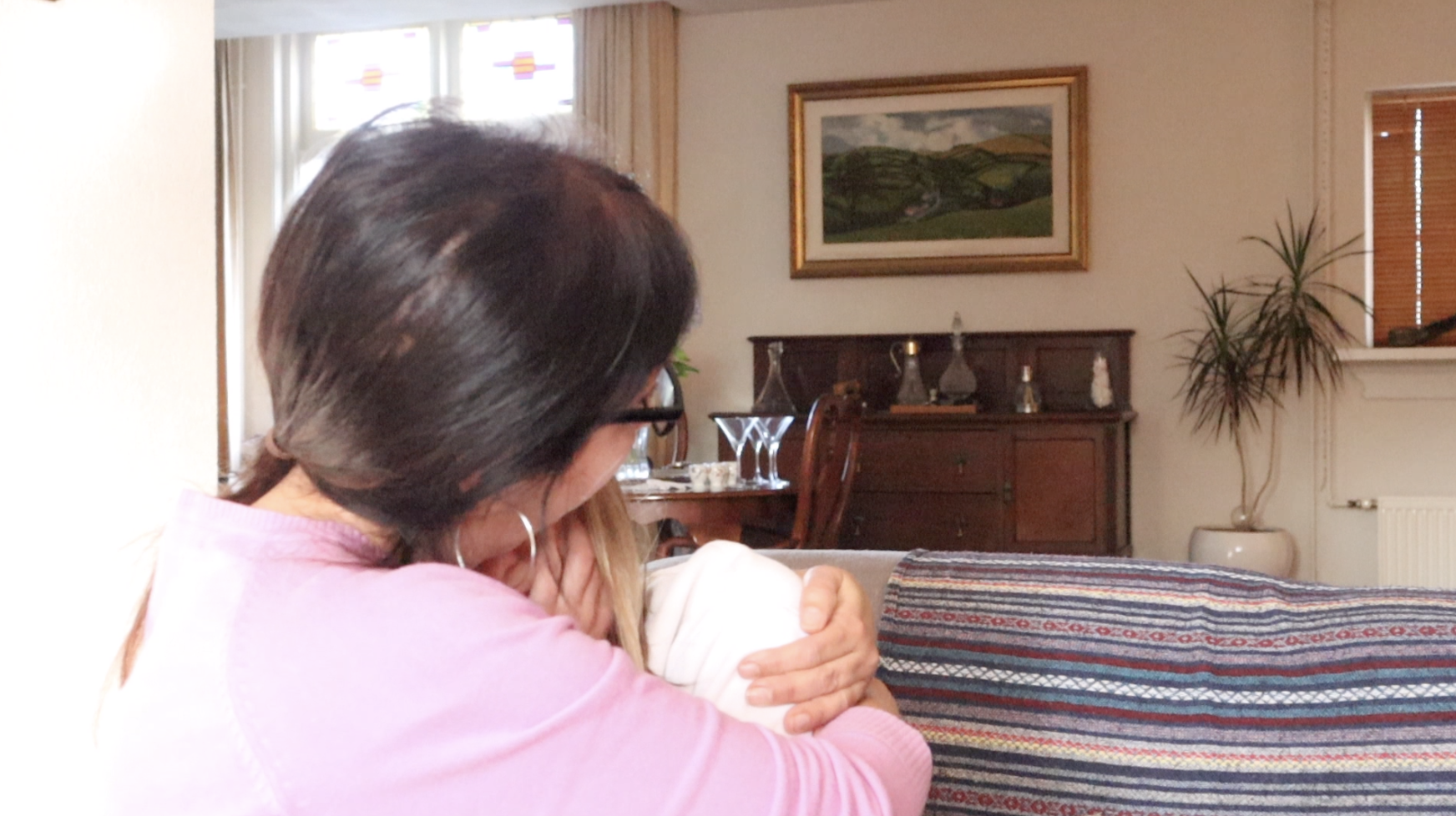
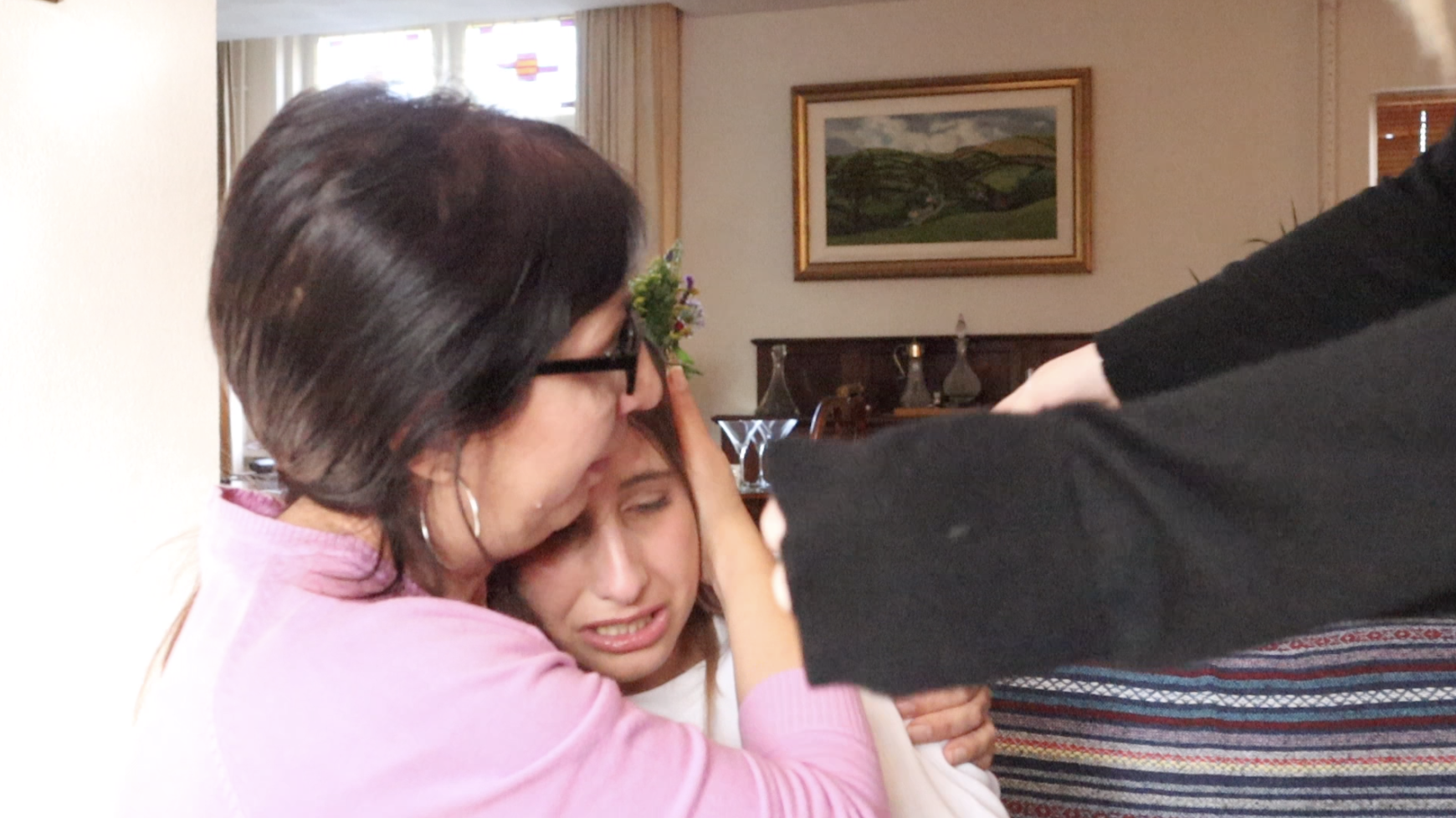
Political Influence
Politics plays a major role in Malta, the two main competing parties are the Nationalist party and the Labour Party.
When the general elections take place, every five years, every aspect of life in Malta goes crazy. The political influence is very visible "not only on the 8pm news, at the grocery store, in the village swear, on the bus, in church, wherever."
Both parties have thousands of enthusiasts who will try their best to make sure their party wins.
Supposedly, a few months before each election, there are events such as concerts and parties including mass political rallies that take place every Sunday where people come together and chant for their favourite party.
Politics played a major role on impacting the creation of the Foster Care system in Malta and still affects it to this day.
In 1996, a Social Welfare Development Programme (SWDP) started a project to set up a Foster Care system in Malta. This project was led by Mr John Role.
Mr Role spent just under a year, creating a plan for the system but when attempting to implement it, in October of 1996, the Maltese Elections took place which caused a major set-back in Mr Role's plans. He said "politics is crazy here."
Mr Role told me how the SWDP was set up by the Nationalist Party while they were still in power, and despite having a very positive meeting with the Prime Minister to move forward his program, unfortunately they weren't re-elected.
The newly elected Labour party did not want to move forward with the program. This caused a two year delay until the next election, when the parties were reversed again and the program took off.
Mr Role went from being on his own, to having a 10 social workers in his team.
Mr Role pointed out that the Nationalist party had social workers who knew about children's issue's and thus why they were open to starting up the program. However, the labour party made political appointees who weren't necessarily knowledgable or supportive of social issues.
"Instead of appointing people who know about the right issues, their mentality was to find someone who is a member of the their Party."
He told me that the only thing Ministers care about is votes, which negatively impacts children considering they cannot vote. He said that it's easy to bribe a Prime Minister as long as you promise to vote for them and their party. He said "Once you're a minister, all you care about is votes and kids don't vote."
Mr Edgar Galea Curmi, now a professor of Social Policy and Social Work, used to be the right-hand man of the Prime Minister of the Nationalist Party.
Much like Mr Role, Mr Galea Curmi made comments about the issues relating to politics, which was interesting to hear from someone who was once very involved with politics.
The Labour Party has been in power in Malta since 2013 and the Prime Minister has been Mr Robert Abela since 2020. Mr Edgar Galea Curmi told me that the current Party bases all their decisions on appointing people who are in the same party.
Meaning that the current Fostering board are all appointed based on their political stance, rather than their knowledge of the subject. He said "You now have a board which is appointed with political considerations."
Mr Galea Curmi also told me that he has noticed a lot of advertising about Fostering, which seems to convey the wrong message and doesn't tell the complete truth.
Depending on the party in power and their views on Fostering, the advertising and handling of the Foster Care system changes.
This is one of the reasons why Mr Galea Curmi believes that politics shouldn't have a direct influence on the system.
"One issue is that the service needs to be depoliticised."
Supporting what both Mr John Role and Mr Edgar Galea Curmi had told me is Dr Lorna Muscat, the Head of Office at the Commissioner for Children's Office.
The Office of the Commissioner for Children was set up as apart of the "terms of the Commissioner for Children Act of 2003, to promote the welfare of children and the compliance with the UN Convention on the rights of the child, as ratified by Malta on the 26th of January 1990."
The office focuses on the protection of children, and the promotion of children’s rights to ensure the necessary provision of services for children.
Dr Muscat and I spoke about the current Commissioner, Ms Pauline Miceli, who is one of the only commissioner who's term was renewed.
Dr Muscat told me about all of the positive changes that had been made since 2016, when Ms Miceli was made commissioner. However, she explains to me that the commissioner is politically appointed and chosen by the Prime Minister.
Dr Muscat believes this is the wrong way to do things, telling me that if you don't personally know the Prime Minister, you have less of a chance getting the position.
She believes the commissioner should be appointed through a call of applications with complete transparency. This would make sure that someone with the right background would be chosen.
She said "This is something that is wrong in the system, a commissioner is politically appointed."
Dr Muscat highlights the importance of a Commissioner needing to have the right background and knowledge and be passionate about the welfare of children, not someone who simply votes for the right party and knows the right people.
Dr Muscat said that when a new Party comes into power, they change all the people and this has a direct affect on the children as they are expected to bond and get to know someone completely new. She said "this is something that needs to change."
The story of a foster mother who fought to give children a voice
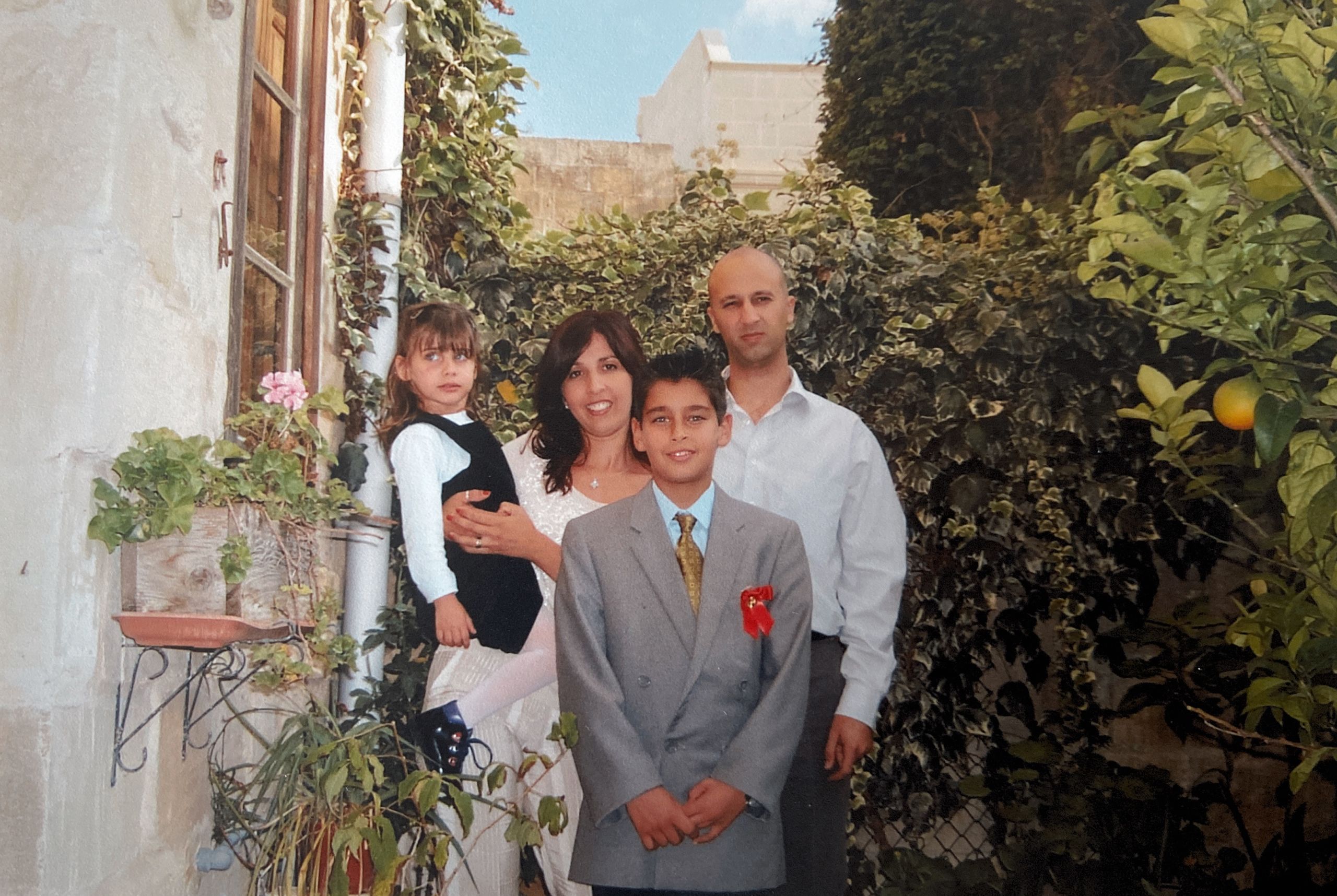
I spoke to Heidi, Maria's foster mother. Something to make clear, is although Heidi is her foster mother and isn't biologically related to Maria, she is her mother.
Heidi is well known in the Maltese media, she has always spoken up for what she believes in and has shared her stories and struggles she went through.
Heidi has spoken to many newspapers in Malta and has been on multiple Maltese TV shows, along with Alfred and Maria.
After having cancer and the opportunity of having a child was taken from Heidi, she started to volunteer in an orphanage. She said "I was introduced to a whole different world. I couldn't believe my eyes when I walked into the orphanage and saw so many children."
She said "I had no idea about this whole other world where children suffer so much."
Heidi told me she had never heard of fostering until one of her friends told her about it and Heidi immediately knew this was something she wanted to do. After convincing her husband that this is something they should do, they signed up to go through the process.
Heidi speaks about John Role, the creator of the foster system. She told me that he is Malta's hero and he really helped them through the whole process.
Heidi and Mark did a course, which consisted of six sessions, each about three hours long. In these sessions, John would put the couples in scenarios of what these children go through so that they could become more emotionally connected and understanding.
After the course, you decide whether you want to go through it. If you do, you go through a lot of paper work and assessments where they assess your house and make sure you are capable to take care of a child.
After this step you are asked for your preferences on age and gender and then finally the matching starts.
Heidi and Mark were asked to consider fostering two girls. These two girls were Maria and her younger sister. Heidi already knew the two for a year because they were at the orphanage she was volunteering at.
Mark and Heidi happily accepted, but of course, this process takes a long time. While this was going on, Heidi and Mark were asked to foster a young boy, Alfred, who was almost 10 years old. It was an emergency situation as his placement had ended and there was no space in children homes.
By complete coincidence, Alfred was a sibling of the two girls, so Heidi and Mark gladly accepted.
This is when Heidi told me about the issues they went through with Maria and her younger sister.
She told me how the system let down these siblings and that it should have been handled differently. Mark and Heidi offered to adopt all three once they had been married long enough. Nothing worked and once the young girl was adopted, they never saw her again.
The system also let down Maria in the years that are most important for a child's development. A nun in Maria's orphanage, without consulting the social workers, gave Maria to another family. This was done as a favour to the family who weren't trained as foster carers.
After 10 months, Maria finally returned to Heidi and Mark as it was ruled to be to the benefit of both children (Alfred and Maria) to live together.
Heidi told me how the process was very painful and traumatising for all of them. Especially the children, who should always be put first, but some people were simply not doing what was best for the children.
Heidi said that when Maria finally joined their family, she had nothing but the clothes on her back and one teddy bear. It was a similar situation for Alfred, who at the age of ten, only had a bin bag full of clothes. No toys or anything with meaning.
Heidi got very emotional when she told me about this, thinking about all the special things she has, but these children had absolutely nothing.
I asked Heidi about how easily Maria settled into the family and she told me that like with anything, there was a honeymoon period where she fit in perfectly but eventually the challenging behaviour started.
She said "It's a long process for them to trust you, there are a lot of behavioural and school issues."
Heidi said she was constantly called into school where the teachers would ask her why Maria and Alfred were acting the way they were, and why they behaved the way they did. They questioned Heidi as a mother and the way she disciplined her children.
Heidi believes that this is something the Maltese school system still has to become more aware of. That although they are more aware than in the past, there is still a lot to be done to make sure schools understand the behavioural issues of children that have been in care and that have been through all these traumas.
Heidi also believes that the system needs to focus much more on keeping siblings together. She said "Their parents let them down, a sibling is the closest thing they have to family and who is going through the same thing they are."
Heidi used to take Maria and Alfred to see their other siblings. She explained to me that at that time, it was very unusual to take siblings to meet each other, but she pushed to let the siblings meet up.
After getting permission from the advisory board and the social workers, Heidi managed to take Maria and Alfred to see their siblings every two weeks.
She explained how important and beautiful this time was, that although these siblings were growing up apart, you could see the similarities between them and the love they had for each other.
There are many children that end up institutionalised for years, such as Alfred. This is another aspect that Heidi believes the system needs to work on.
She believes that children need to be placed into a family from the moment they are born. That it should be illegal for a baby to go into a children's home. She said "No child under the age of five to be placed in a children's home. It shouldn't happen, ever."
Heidi and I also spoke about the struggles that she faced as a foster carer. She told me that as a foster carer, you tend to take on their pain and absorb it. She also told me about the judgement that she faced on a day to day basis from different people.
Heidi would get judged by other mothers, teachers, the headmistress and by doctors. By anyone who didn't truly understand what she and her foster children were going through.
Although this was many years ago, it still happens to foster carers everyday and Heidi believes there needs to be more awareness and understanding of foster care. Not only in Malta, but everywhere.
There also needs to be more awareness because these children don't have a voice themselves and they are suffering without anyone even knowing it.
Heidi urges anyone to open their hearts and help these innocent children. They deserve love, a family and should be helped from the moment they are born. They shouldn't and don't deserve to be put in homes to suffer.
She said "Put yourself in their position and think, what if I was the one born into this situation? Wouldn't I want to want love and a family?"
Heidi hasn't only spent her whole life fighting for her foster children, who deserved better, but she has fought for all children in care. She has fought for their voices, rights, support, care and lives.
Heidi has been the voice of voiceless children.
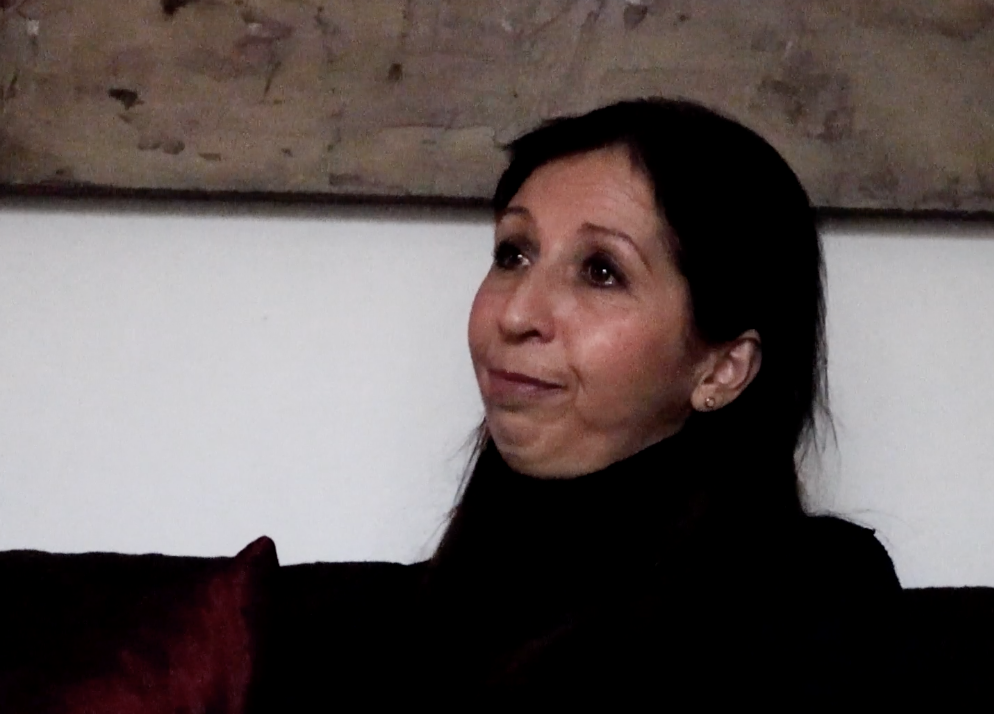
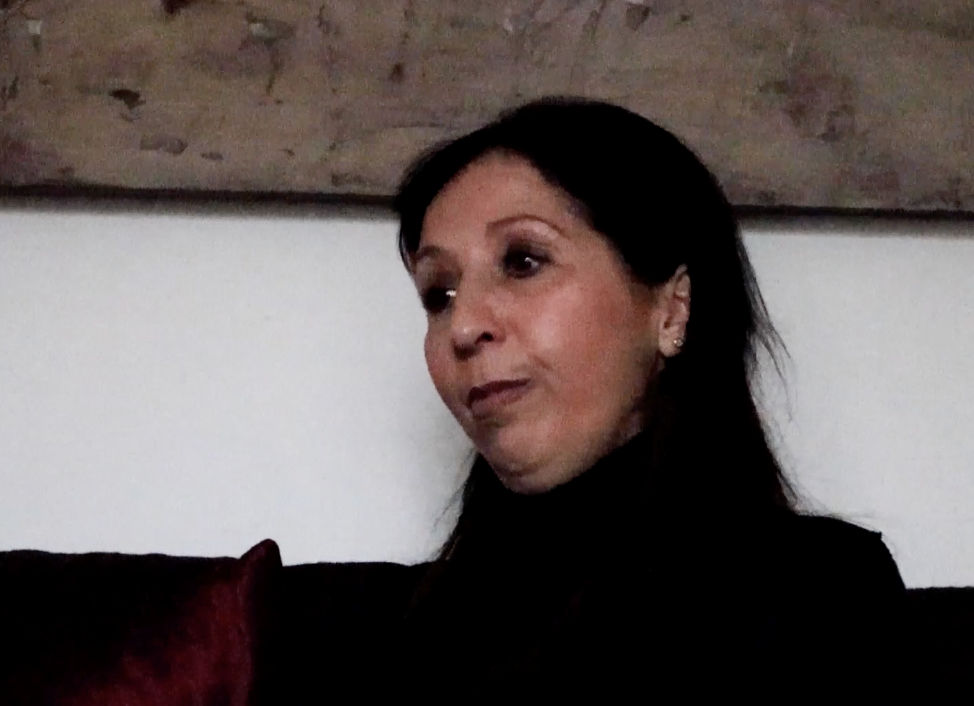
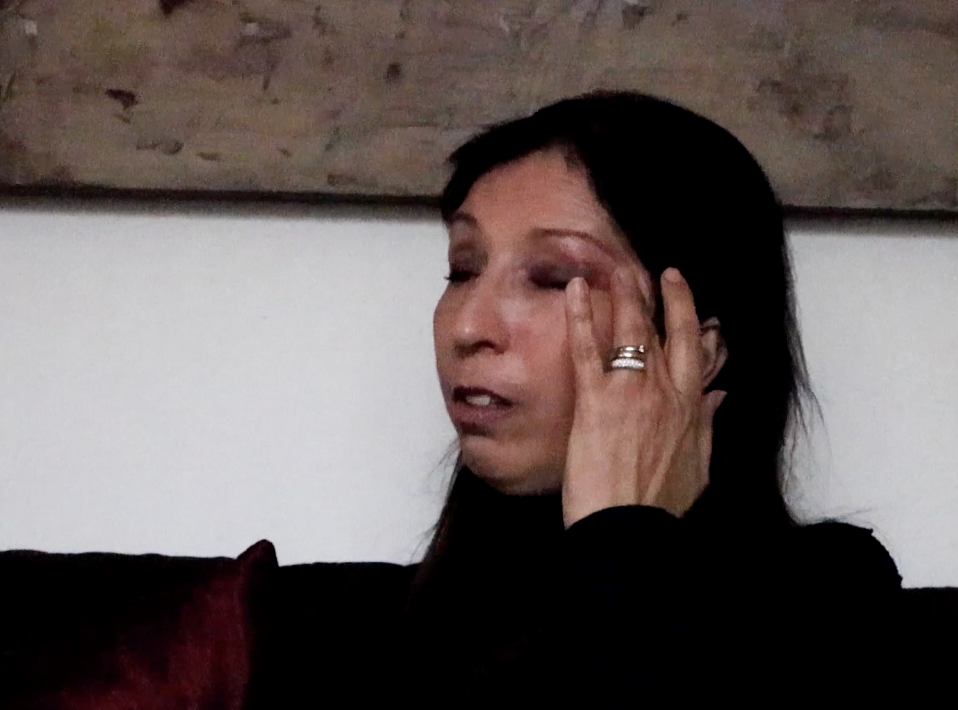
Recent developments in the Maltese Foster Care System
For the first time in Maltese history, in July of 2019, the Maltese parliament approved new legislation for child protection which came into force in July 2020.
The new law is known as The Minor Protection (Alternative Care) Act and is chapter 602 in the laws of Malta.
The Minor Protection Act stipulates that there would be two directorates; The Directorate for Alternative Care and The Directorate for Child Protection.
All children's services are gathered under the Directorate for Alternative Care, which provides a service for all the children in alternative care and youths who are in vulnerable situations.
The Directorate for Child Protection makes decisions, according to the new law, determining whether a child has to be removed from a biological family either via a court order or via a social contract. These children will then come into the services of the Directorate for Alternative Care.
Before the new legislation, an agency called APOGG focused on children and families and therefore covered a variety of services such as child, family, health and adult services. With the creation of the new directorates, APOGG now solely focuses on adult services such as the support line and the national helpline.
I spoke to Ms Remenda Grech, the current director for the Directorate of Alternative Care.
I asked Ms Grech whether the Maltese government is investing more money into foster care. She told me that recently the government has been taking fostering much more seriously.
In the last two years, there has been an increase in the fostering allowance, which hasn't happened for years. She explained the new law gives more legal rights to the children in care meaning the government has to invest more into foster care.
"The main focus of the new law is the best interest of the child."
Ms Grech said she believes everything they have done in the last year shows that the directorate truly believes in fostering and believes in the best interest of the child. That it's not all talk, but they are actually enacting on things now. She said "we are seeing children who are really benefitting from what we are doing."
A new aspect that is included in the law is permanency.
What is meant by permanency? When a child is fostered, depending on the circumstances, there is always a possibility that they can return to their biological parents. Permanency plans prepare a child for long-term care in out of home placements (this can be in foster care or institutions). Thus giving the child a sense of security and stability.
Ms Grech said "as a directorate, we believe in our own heart that a child should go back to the biological family." However if they have tried everything and there is no possibility of reintegration, they want to give security to the children and that's exactly that the new permanency clause does.
So far, 37 permanency plans have been approved by court from July last year until now and there are more being processed.
This would seem like the right way forward, however after speaking to multiple people in Malta, they feel biological parents are given too many rights.
These permanency plans aren't offered until the directorate have tried everything in their power to get the child back with their biological family. This is where people believe the issues lie.
Therese Galea, who was institutionalised from birth until the age of nine, was forced at the age of five, to stay with her biological family for a weekend. This weekend traumatised Therese and ended with the police taking her back to the orphanage.
She passionately expressed "I don't care about the mother, I care about the kids. The kids are there to have their life, not to suffer the problems that their parents had."
(Read more about Therese's story here.)
Mr John Role, the man who started the Foster Care System in Malta, agrees with Therese and thinks the new law focuses too much on the rights of the biological parents. He explained how he has seen biological parents promising their kids that they will take care of them and, in his experience, rarely did so.
I had an interview with Mr Edgar Galea Curmi, a professor of Social Policy and Social Work in the Faculty for Social Wellbeing at the University of Malta. Mr Galea Curmi said that this issue was officially pointed out by a minister who said that a balance between the rights of the foster carers and the biological parents needed to be found.
Mr Galea Curmi believes that foster carers aren't seen as colleagues, but as competitors to the biological parents. If the directorate believes a child should maintain a relationship with the biological parents, the best way is to involve the foster carers. Foster carers are a resource for the social services and should be viewed that way.
Mr Galea Curmi explained this has been an ongoing issue in Malta. He shared an article that was published in 2015, in the Times of Malta, about foster carers being anxious that permanent fostering would be removed from the proposed changes to the Child Protection Bill and where the Prime Minister, at the time, says that permanent fostering is "not à la carte".
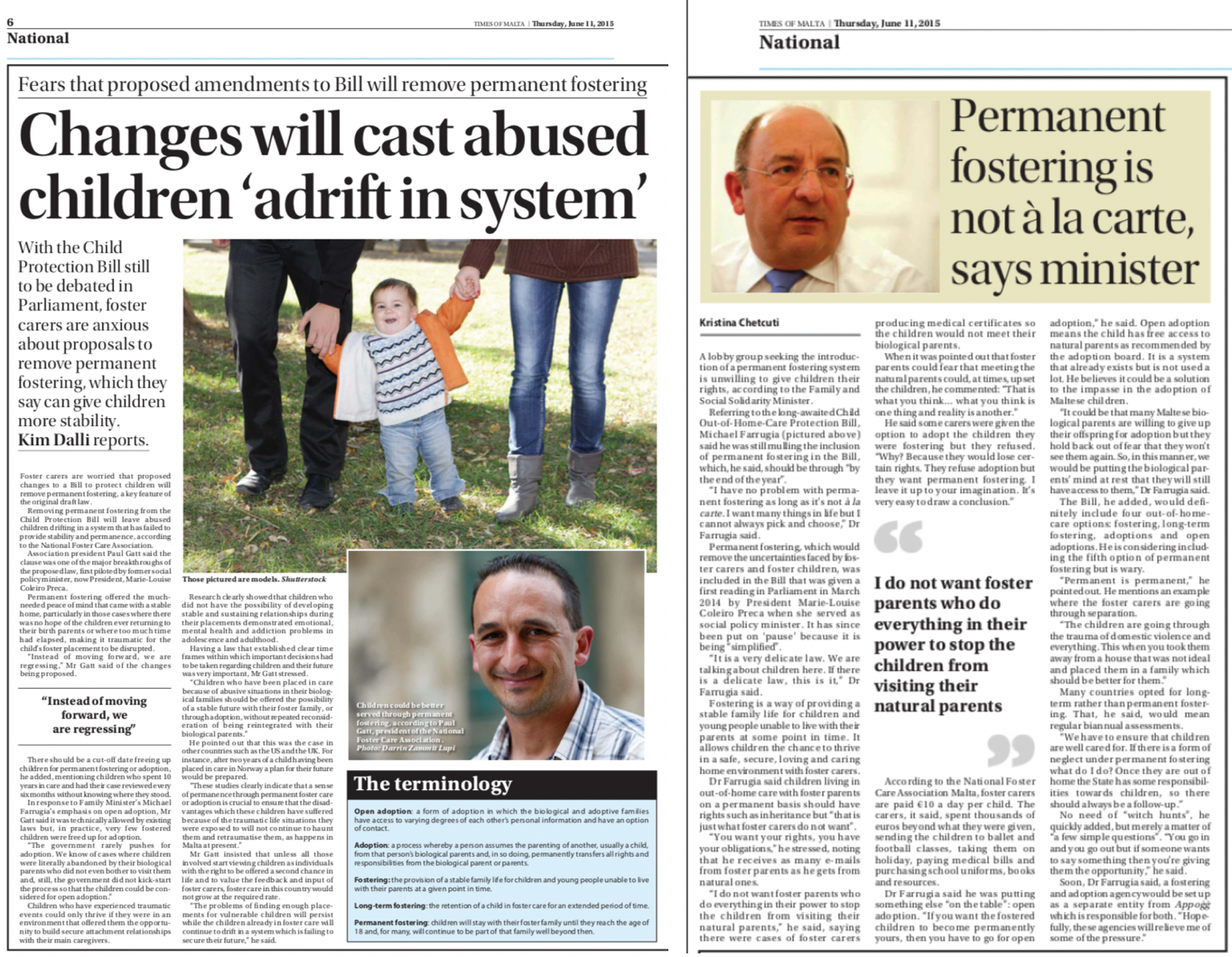
An article from 2015 written by Kim Dalli in Times of Malta on Permanent Fostering.
An article from 2015 written by Kim Dalli in Times of Malta on Permanent Fostering.
Although these issues were expressed to me, everyone told me that they are happy that the new directorate have actually enforced these permanency plans as it shows that there is change being made and it is a good way forward.
After hearing about these issues with the biological parents, I asked Ms Grech what was being done for the children that don't want to visit their biological families.
Ms Grech said they are being more specific on what will happen to the child once they are removed from care.
She mentioned when a child will be returning to the biological parents, there are social contracts that would stipulate that the child will be going back to their biological parents in a years time (for example) but certain stated actions have to happen before they go back.
This makes sure that the child knows when they are going back and what is being done for them to go back. This wasn't happening before but they now make it very clear and transparent, which the new law insists on.
The other aspects she mentioned was coparenting. This is used in situations where they know that reintegration is possible, but not straight away and so the foster parents and biological parents will coparent until the child can return to the biological family.
This answer seems to back up what I have been told about the focus on biological parents.
On the flip side, the coparenting aspect does show that foster parents are being seen as a resource rather than a competitor.
Something that the directorate is doing to support foster carers more is investing in specialised fostering.
Families that are fostering more than one sibling are offered a package, called specialised fostering, where they are given more support and where the government gives them more allowances.
Something Mr John Role mentioned multiple times was that foster carers weren't legally recognised so they weren't getting any protection at all in the past.
When speaking about the present, Mr Role said the new law supposedly protects foster carers.
Mr Role believes, however, that the new law is a mash-up of a care orders act, a child protection act, fostering and residential care. There isn't a Foster Care Act, per-say, where it states that foster carers should be protected.
Mr Role believes that Foster carers should get more support as they are providing a 24-hour service, he said "I don't think you can ever give foster carers enough support."
Mr Role told me that foster carers receive online training once a month, however it doesn't seem to be completely effective as foster carers have formed a separate facebook group where they discuss complaints and issues.
I knew about the group Mr John Role was speaking about, in fact I am a member of the group. I joined so I could get an idea of what these foster carers were struggling with and what areas they need more support with.
Due to Malta being a very small country, making people and specific situations easily identifiable, I will not be divulging any information that was shared with me.
I had people from the group come forward to speak to me and then days later, messaging me, worried that they would be recognised by their story and asking me to retract them. They were worried it could cause harm to them or their foster children if the wrong people got access to the information.
This immediately rang alarm bells about freedom of speech and possible repercussions in a very small community.
Mr Galea Curmi reaffirmed that foster carers are a major resource that social services should be working with. Once they are seen as colleagues and people to support and finance, there can be real change.
"As soon as this is done, then the whole foundation of foster care can thrive."
Mr Galea Curmi shared a diagram called 'Circles of Support'.
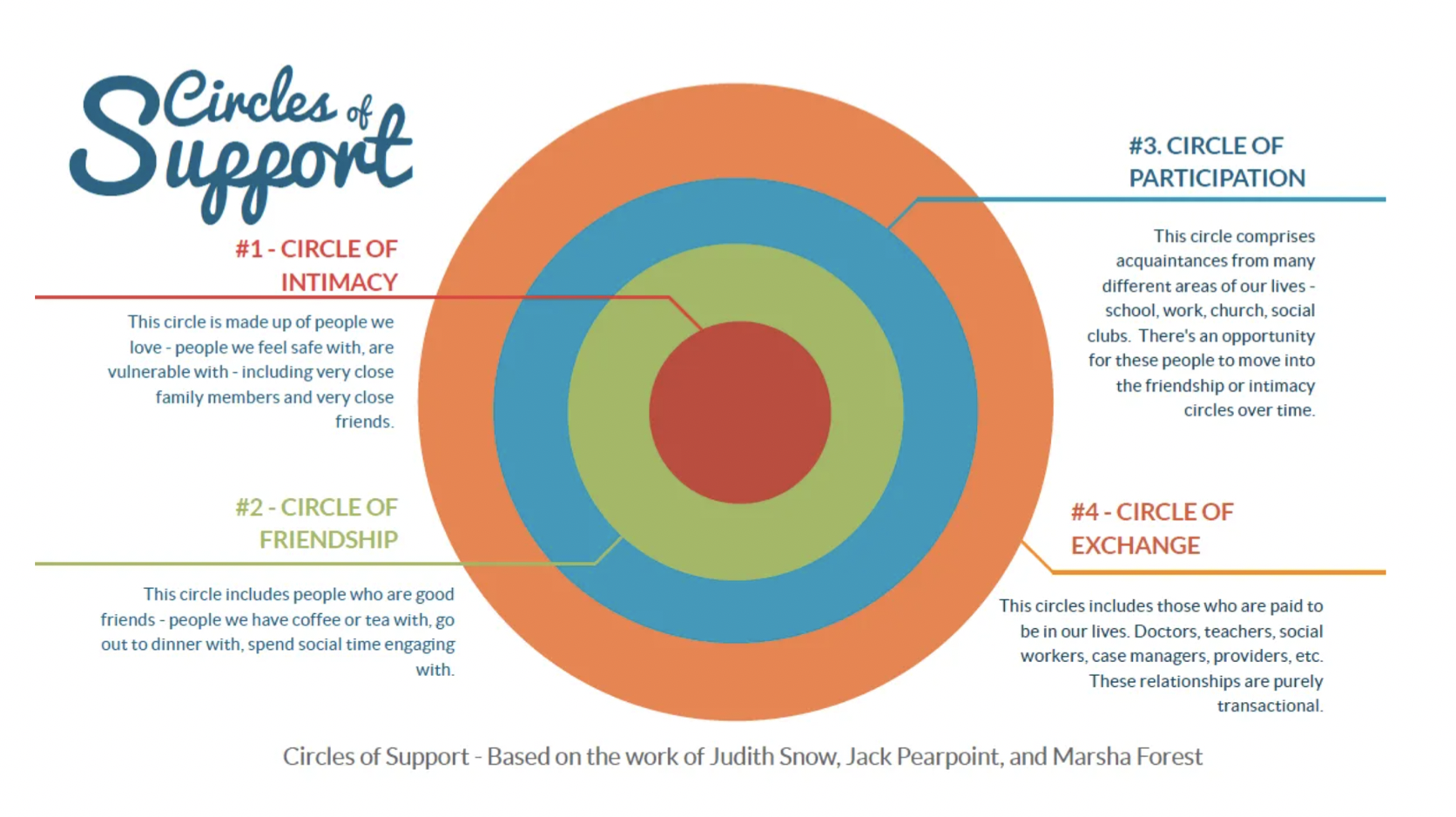
Circles of Support Digram created by Edgar Galea Curmi.
Circles of Support Digram created by Edgar Galea Curmi.
As shown above, the graph consists of four circles; the core, which is the circle of intimacy, the circle of friendship, the circle of participation and finally, the outer circle which is the circle of exchange.
Children in care tend to have most of their support in the outer circle, but they need the core in order to try and live a normal life.
He explained that formal services are limited in what they can do to replace or replicate what families do for people, with the exception of Foster Care and Adoption.
The system can have the best professionals but they can't give these children a sense of security, belonging, purpose or self actualisation which give them their self identity. He said "There is no professional that could give to a child, what a foster family can give."
This is why Mr Galea Curmi thinks it's a shame that the system is missing this support towards foster carers.
Ms Remenda Grech spoke about other important aspects of the new law. One of these being the possibility of adoptions.
Incited in the law, foster carers who have been fostering a child for five years and in some cases three, can adopt the child. She mentioned "this is going a step further and having foster families adopt the child and thus the child having a legal family to call their own."
This is another sensitive area and once again, to outsiders who haven't experienced what children in care go though or what foster carers go through, this seems very positive. It gives a chance to see whether the child can fit into the family properly and then they can officially become apart of this family.
However, from someone who has the experience of being in care, it doesn't seem good enough.
Therese Galea told me that she believes a foster family shouldn't have to wait as long as five years to adopt a child and that if the child fits into the foster family nicely, they should be able to legally become a part of that family.
Ms Grech said something the directorate needs to focus more on is to properly prepare the children by listening to the children's views.
This is something that needs to change in Malta because the mentality is that children cannot be heard, but they can. She said "Adults cannot make a decision, on the behalf of a child, without actually hearing what the child has to say."
Ms Grech spoke about a recent restructuring of supervised access visits, where she sent her manager to go and speak to the children, to get their views on how the service should change.
A supervised access visit is "when a parent can only visit their child under supervision of someone, this could either be a family member or social worker. The visits can take place in the parents home, the foster parents home or a designated visitation facility."
Ms Grech believes that as a children's directorate, to create positive change, she has to discuss with the children and hear what they want. This is something that the directorate is working on.
An issue that was raised to me by Heidi and Maria, was that Maria was stripped of the chance to grow up with her sister. I asked Ms Grech how they are avoiding situations like these.
Ms Grech said the government is investing heavily into community homes and residential homes.
When a child is put into care, there are multiple options. Foster care, community homes, and residential homes. These also fall under the Directorate for Alternative Care.
The Directorate runs eight community homes, some have one child, some have two children and some have four children. Many having homes with only siblings.
Ms Grech explained that if they don't find foster families for siblings, they can go to these community homes where they become apart of the community and live with carers.
"We truly believe siblings have to remain together and we are investing heavily in this."
Ms Grech and I spoke about the importance of social workers and how the directorate makes sure a child is comfortable with their social worker.
She said if a child isn't bonding with the social worker properly, they make sure the child has a support person, someone meaningful, that the child can go too. Sometimes this is another social worker, a mentor, a youth worker or the foster carer.
Ms Grech focuses on the importance of the child having someone there to support them who they can form an emotional bond with.
At the moment Malta is facing a lot of struggles with regard to social workers.
Ms Grech explained that in the past they had no resources or money to invest in social workers, however at the moment she has the money and the approval, but can't find the people.
She said there is a shortage of social workers and that the University of Malta isn't producing enough.
However, as a foundation they have the best collective agreement in Maltese history and there was never a time where the social workers were remunerated in the way that they are now.
She explains that the CEO worked incredibly hard to get them a good package. The social workers are provided with CPD (Continuing professional development- helps the social workers maintain and improve their practice), training and the option to move around services, while still be retained in the foundation.
I asked Ms Grech how they support children in care once they are of age. She told me that last year, her directorate started an aftercare service.
Once the child attains the age of 15, whether in foster care or residential care, they are followed by the aftercare service until they are 18. The service makes sure that there is a good plan set out after they turn 18. Whether they want to stay in training, remain in education, if they want to find employment or if they want to stay with their foster carer.
The directorate has the youth services within it, to focus on this and help struggling children later in life.
The youth workers and professional help struggling youths not only with finding jobs but with social skills and reintegration in society. They have numerous services such as drama groups, interventions and detached youth work.
There is a project which is funded by Norway to give an opportunity for children to enter into skills training or employment.
I spoke to Anna Azzopardi, Therese Galea's foster mother and she expressed her concerns with the after care services.
Anna believes that these children need more support after they reach the age of 18 because they don't simply grow up over night.
Something I heard from almost everyone I spoke to was the importance of placing a child straight into a home from brith. That babies should not be placed in a children's home.
"No baby should be placed in a home, it should be illegal in my eyes."
Anna Azzopardi has the experience of fostering a child that was institutionalised until the age of nine, as well as fostering a child who was given to her as a baby. She notices a clear difference and sees the damage caused by children being institutionalised.
As a child who was institutionalised until the age of nine, Therese Galea also feels very strongly about this.
She said that if a child has the possibility of being placed into a home from birth, they should get that chance because otherwise they will miss out on all of the things that she did. She doesn't understand why these children cant be given to these foster families that are opening their hearts to help these children.
I asked Ms Grech about this and she spoke about a new policy that her directorate has taken. The policy makes sure that any child under the age of three, that needs a placement, is given a foster placement. She said "We believe that a child as young as three, has to have a family."
She said they are working very hard on it and in the last few months they have managed to place every child under three, in Foster Care.
I was told by many that Malta as a country, struggles with support for mental health. A lot of children in care tend to develop mental health issues because of all the traumas they have been through. I asked Mr Grech how her directorate is supporting these children.
Much like others had told me, Ms Grech said that Malta has huge difficulties in this area. However she explained that the new law regulates a secure therapeutic unit which should help.
The unit has not yet come into force because to set it up you have to find a place and have the right training, which all takes time. She told me that "We are working on this in Malta."
The last area that Ms Grech and I discuss is the issues that they have with not having enough foster carers in Malta to meet the amount of children who need foster homes.
She said the directorate is planning a fostering campaign to try and urge more people to foster children. She highlights the campaign will clearly show the difference between fostering and adoption, as not everyone seems to understand this fundamental difference.
She explained how this is another culture change that is needed in Malta as they have had situation where the foster carers were not open for the child to go back to the biological family and this made things difficult. She said "Most often the case will be respite until the child is ready to go back to their biological parents."
Ms Grech said people need to understand that fostering may not be long term, and if they aren't happy with short term, they should adopt. The campaign will make this very clear.
What makes a country corrupt?
Heidi often used the word corrupt when speaking about the foster care system but what exactly is meant by corrupt?
Transparency International - the global coalition against corruption created a Corruptions Perceptions Index (CPI) in 1995 as a "composite indicator used to measure perceptions of corruption in the public sector in different countries around the world."
The CPI for Western Europe and the European Union is 66 out of 100 and shows the countries with the top and bottom scores. Some of the top scores include Denmark and Finland and some of the bottom scores include Romania and Hungary. Malta is neither the top nor bottom.
Malta is currently ranked 53 out of 100, well below the Western European average.
An EU report states the following about the rule of law in Malta: "Deep corruption patterns have been unveiled and have raised a strong public demand for a significantly strengthened capacity to tackle corruption and wider rule of law reforms."
Malta has dropped 7 points since 2015, which is assumed to be related with the assassination of investigative journalist Dapne Caruana Galizia in 2017, as this was seen as an attack on freedom of expression.
Daphne Caruana Galizia was investigating "high-level corruption amongst Malta's wealthy and political elite, and its connection to high-level politicians". Showing the demand for reform and the connection to politics.
Something to consider from this is that if corruption in Malta is bad and getting worse, this will feed into the foster care system and other aspects of life in Malta. Including politics, which would have a direct affect on all these types of services.
Background of the Foster Care System in Malta
During the 90's, Malta did not yet have a proper Foster Care system in place. Taking a child out of children's homes (residential care) for the weekends or for christmas was considered to be fostering.
There was one social worker in charge of adoption and foster care.
In 1994 the Social Welfare Development programme was set up to work on the improvement and development of services in the social welfare sector. This later led to the setting up of Aġenzija Appoġġ.
Aġenzija Appoġġ is now compromised of 30 different services "focusing on children, families and adults in vulnerable situations and/or at risk of social exclusion and communities."
In 1996, included in the Social Welfare Development Programme (SWDP) was a programme to start a proper Foster Care system in Malta.
I met up Mr John Role who was in charge of this programme. He said "I feel blessed I was given the opportunity to do it, for me, this is my life. It was planned by god."
Mr Role told me that in 1996, there were only 27 foster carers, that there was no training or support for the foster carers, no case work, no policies existed and there was no law or legislation.
There were only seven or eight social workers that covered the whole of Malta and the Social Work course wasn't introduced at the University of Malta until much later on. Meaning there weren't enough social workers in Malta to cover certain services.
Mr Role created a mind-map, to clearly outline everything that needed to be done.
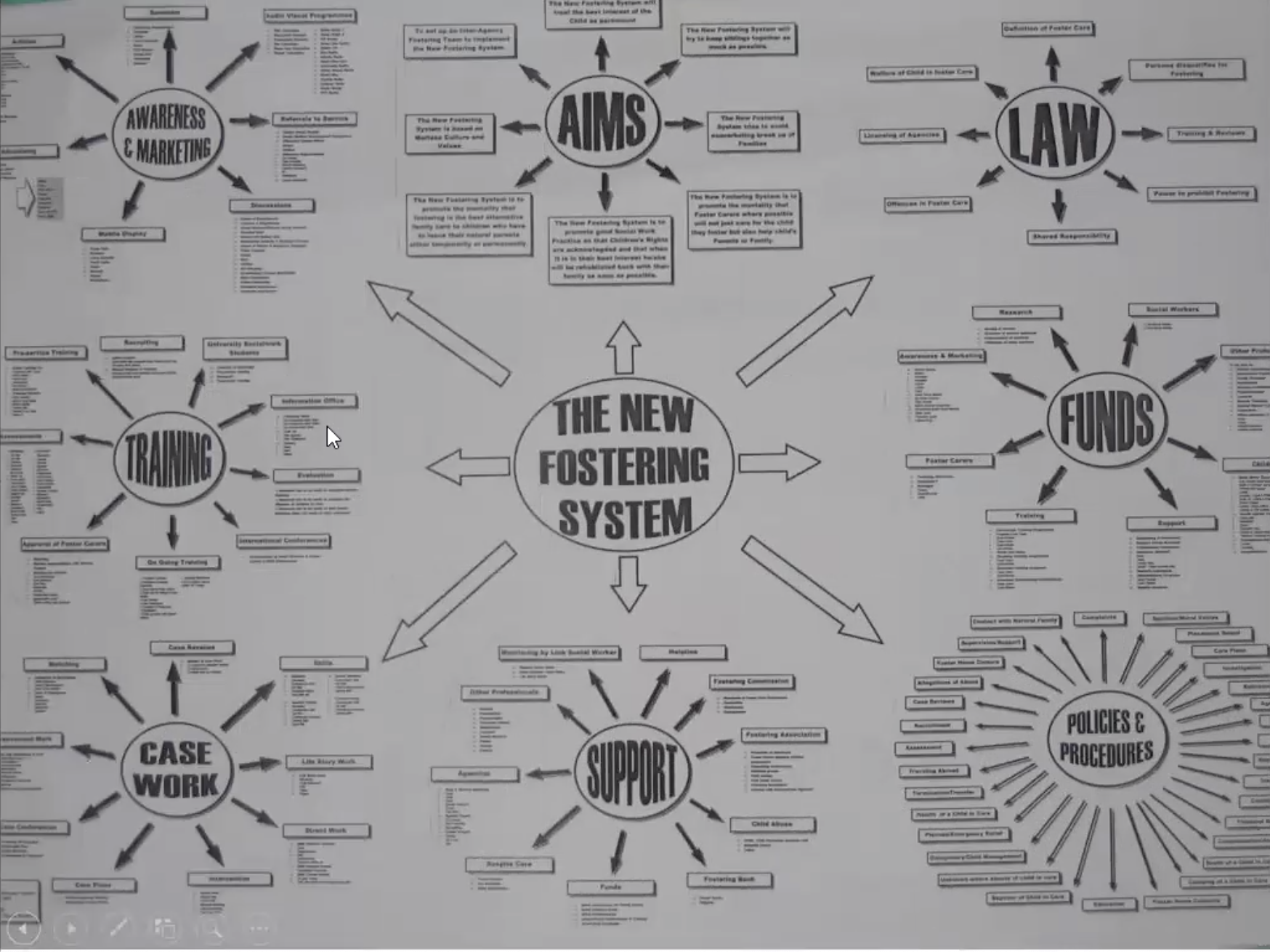
Original mind-map made by John Role to create a Foster Care system in Malta.
Original mind-map made by John Role to create a Foster Care system in Malta.
The mind-map (shown above), shows the steps that needed to be taken in multiple areas: with the training, with the awareness and marketing, the law, the funds, the support etc. All of the non-existent areas that John had mentioned.
Firstly, Mr Role wanted the creation of an inter-agency foster team. There was one social worker taking care of 27 foster carers and all adoption cases. Mr Role was on his own in creating a proper system and needed more people and more support.
Secondly, he wanted to make people aware of what foster care was all about. He told me how they did a TV program where they went to Valletta, the capital of Malta, to ask people what they thought about fostering and nobody knew what it was. He told me that when he sees this video, it makes him realised how far they have come.
"I remember one of the replies was 'phosphorus? is that the light that comes out from the bones in the grave?'. Someone else thought we were talking about Foster Clark which is a Maltese custard company. I'm telling you, thats how bad it was."
Mr Role started working on an awareness campaign and he told me how he went to the UK to try and adopt the material to the local Maltese culture.
In October of 1996, the Maltese Elections took place and this political influence caused a massive set-back in Mr Role's plans. After two years, when the Nationalists were back in power, he went from being on his own, to having 10 social workers in his team.
They were finally able to put Mr Role's idea's in practice and they worked hard to make up for the time he lost.
He told me that things really took off from here and that at one point, there were more children in foster care than in residential care.
Mr Role was a board member of the International Foster Care Organisation (IFCO) and explained how much this helped when creating a Foster Care system. The president of IFCO, came and gave training in Malta and gave them advice on how they could better the service.
The IFCO conferences helped Malta avoid mistakes that other countries had made. He said "Here in Malta, we are a village in Europe, so in a sense you can organise yourself much better."
Mr Role told me how they organised a conference in Malta in 2007 and how the conference really helped when it came to establishing the Maltese legislation for foster care.
He also told me that, organised through IFCO, 32 European countries, including Malta participated in the creation of the Quality4Children (Q4C) standards.
The aim of Q4C was to create common European standards for children in out-of-home child care. 500 people contributed to the development of the standards, of which nearly half of them were children.
From the years of 2009 until 2018 there were annual Foster Care Conferences however not a lot of progress was made.
In 2013 a Children's Act was drafted, this act was passed through parliament in 2014 but by 2015 the Children's Act was discarded and a Child Protection Act was drafted.
In 2017, after being the leader of the Fostering Agency in APOGG since 1996, Mr John Role decided to leave as he felt unwanted and mistrusted.
Two years prior the ministry transferred Mr Role to another agency within APOGG. This caused an uproar with foster carers and the ministry was forced to transfer Mr Role back.
Mr Role said how he struggled these next two years and came to the decision to finally leave. He changed his focus on working with the National Foster Care Association Malta (NFCAM).
Later in 2017 the Child Protection act was also discarded and this was when the current Minor Protection (Alternative Care) Act was drafted. This was approved by parliament in 2019 and put into force in 2020.
During these years NFCAM focused on making a change. Three books were published through the association, which were the first every Maltese books about Foster Care.
NFCAM also provided two training seminars in 2018 and four online training seminars in 2020.
I asked Mr Role how the Foster Care system differs from when he first started and he told me that they managed to start a system where foster carers are legally recognised. As well as that Foster Care is no longer a taboo in Malta.
When interviewing Mr John Role, he spoke with so much passion and so much gratitude. He worked incredibly hard to create a successful Foster Care system that would not only give a better life to children, but support the foster carers as well.
"We give opportunities to these young children and the satisfaction of this is better than any pay or any salary."
